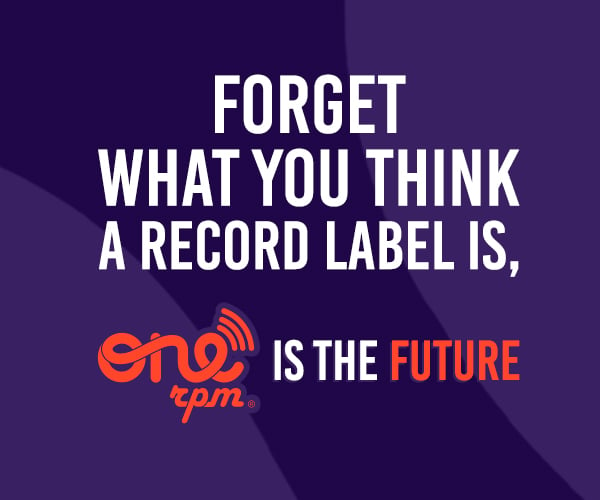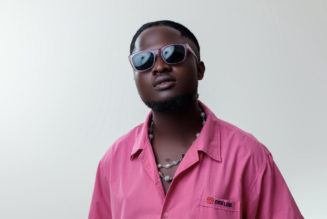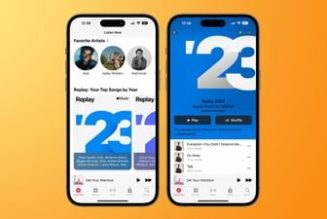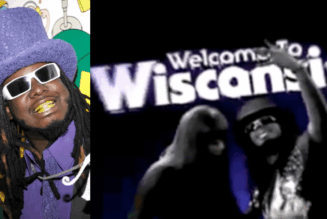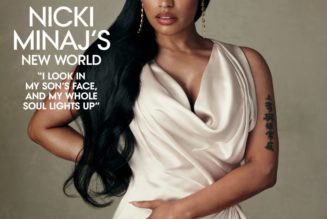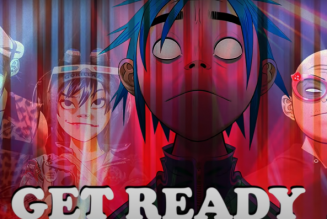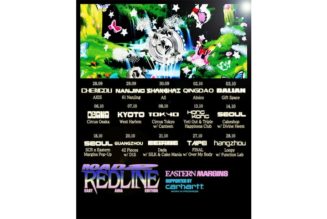Trailblazers is an MBW interview series that turns the spotlight on music entrepreneurs with the potential to become the global business’s power players of tomorrow. This time, we speak to Abdul Karim Abdullah, Co-Founder and CEO of Ghana-based cultural entertainment platform AfroFuture. Trailblazers is supported by TuneCore.
The spotlight continues to shine on Africa’s music business.
Sub-Saharan Africa (SSA) was the world’s fastest-growing recorded music region in 2022, seeing 34.7% YoY growth (IFPI) last year, and the growth opportunity for subscription music streaming in the SSA region is becoming significantly clearer.
Africa-focused music streaming service Mdundo, for example, recently reported a 239% YoY jump in revenue from paid subscriptions, with the company recording a 23.2% YoY increase in monthly active users (MAUs). Geographically, the streaming company’s focus is on five key SSA markets: Nigeria, Kenya, Tanzania, Ghana and South Africa.
According to a 2022 report from GSMA, 615 million people in sub-Saharan Africa are expected to sign up for mobile services by 2025, on top of the roughly 500 million that were already subscribed as of 2020.
In Ghana, live music brand AfroFuture is tapping into what co-founder Abdul Karim Abdullah says is “largely upwardly mobile, tech-forward Gen Z and millennial consumers” to pursue its ambitions of becoming the “storyteller for the African narrative”.
The music, art, and culture festival (formerly known as Afrochella) was launched in Accra in 2017, and in addition to the core music festival, it offers travel experiences and runs various non-profit initiatives. This year’s edition, in December, will be headlined by superstars like Afrobeats star Davido and British rapper and singer J-Hus.
Abdullah, (also AfroFuture’s CEO) explains in our interview below that the AfroFuture brand “has grown tremendously since its inception”.
The inaugural festival took place on December 29, 2017, at the Accra Polo Court, attracting 4,600 attendees. “We knew we had something special,” says Abdullah.
“From there, we chose to expand our team support and in 2018, we looked to formalize our partnership with media agency, BBnZ Live, for digital content generation and event management support.”
By 2022, the event had morphed into a two-day festival under the AfroFuture banner with superstars Burna Boy and Stonebwoy as headliners, and sponsors ranging from Hennessy and Diageo, to Fenty Beauty, and
“We realized that there was an opportunity for us to bring the community and the diaspora together in a way that hadn’t been done before in the country.” Abdul Karim Abdullah, AfroFuture Abdullah, who grew up in the Bronx, explains that he decided to launch the event after one of his first visits to Ghana with co-founder Kenny Agyapong. “We realized that there was an opportunity for us to bring the community and the diaspora together in a way that hadn’t been done before in the country,” he says. “With our influence, we had the opportunity to stimulate conversation, elevate our people, and tell authentic stories from the continent. As a result, AfroFuture, formally known as Afrochella, was born and planted its roots in Accra, Ghana.” Here, we speak with AfroFuture’s CEO about the event’s origins, its growth trajectory, and his ambitions for the event in the coming years… My first experience in the music industry was when a member of my fraternity, Phi Beta Sigma Fraternity Inc., booked Big Sean at my alma mater, Syracuse University. I remember how much I enjoyed the experience because I was fascinated by how everything came together and the process of creating and managing an event. From that experience, I got my big break as a stage manager for a concert I pitched to W&R Productions for El and Joey B, two major Ghanaian artists, at the Gramercy Theatre From those early experiences, I found the confidence I needed to create, plan, and execute my own event. The only thing left was figuring out how to fund my big ideas. From my first event to then establishing AfroFuture, I’ve gained a tremendous amount of knowledge and it has been the driving force behind everything that I do to create sustainable change for not only Ghana but for Africa at large. Tell us about your journey from there and how and why you decided to launch Afrofuture?
After one of my visits to Ghana with my co-founder Kenny Agyapong, we realized that there was an opportunity for us to bring the community and the diaspora together in a way that hadn’t been done before in the country. With our influence, we had the opportunity to stimulate conversation, elevate our people, and tell authentic stories from the continent. As a result, AfroFuture, formally known as Afrochella, was born and planted its roots in Accra, Ghana. Once Kenny and I agreed on the vision, we looked to build a small but mighty team to create our vision: To bring African art, cuisine, fashion, and music to a global audience, paving the way for additional opportunities that are for us, by us, and celebrate us. Once we established our vision, we mapped our north star – a mission(s) that would guide all that we do and will do for the continent: Once we had our foundation in place, we set out to launch our inaugural festival held at the Accra Polo Court On December 29, 2017. AfroFuture is a global platform that invites people from all over the world, and is an event for those who enjoy the intersection of music, food, fashion, and art. Our brand resonates with the global Black diaspora, and we’ve received significant support from the United States, the United Kingdom, the Caribbean and neighboring African countries. Our attendees are largely upwardly mobile, tech-forward Gen Z and millennial consumers who are committed to the culture and represent over 40 countries across the globe. About 45% of our audience attends the Festival from North America, 13% from Europe and Asia and about 12% come from African countries outside of Ghana and South Africa. Our annual ‘Rising Star Challenge’ is one of our flagship competitions for unsigned and emerging artists in Africa. The ‘Rising Star Challenge’ is our way of supporting live music not only in Ghana, but throughout Africa. To enter into the contest, artists upload an original song to Audiomack and create an
“Our annual ‘Rising Star Challenge’ is one of our flagship competitions for unsigned and emerging artists in Africa.” For the grand finale, one artist from the “Rising Star Challenge” is selected for the ultimate prize – an exclusive recording agreement with Trailblazers is supported by TuneCore. TuneCore provides self-releasing artists with technology and services across distribution, publishing administration, and a range of promotional services. TuneCore is part of Music Business Worldwide
How did you first get into the music business?

Who is AfroFuture’s target audience, and where are they from geographically?
Can you tell us more about the Rising Star Challenge?


